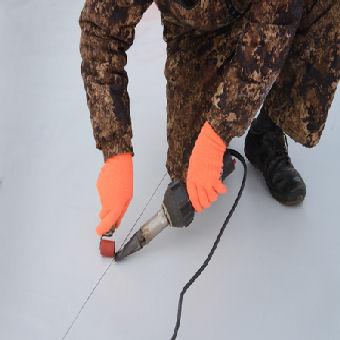The roof of your commercial building is probably the hardest-working component in protecting the property from the elements. All that sunlight beating down on it day after day can take its toll, not to mention the high winds and heavy rains. An elastomeric roof coating can provide an extra layer of protection against these threats by creating a seamless barrier that resists cracking, peeling, and UV damage.
However, this roofing option has some drawbacks that you should consider before making a decision. Here is an overview of what an elastomeric roof is and the pros and cons of installing the roof.
What is Elastomeric Roofing?
Elastomeric roofing is a liquid-applied roof coating system made from acrylic, polyurethane, or silicone. The coating can be applied to a new roof for weatherproofing or an old roof to prevent leaks. Once it dries, it forms a durable, elastic membrane that can last for up to 20 years.
The Pros of Elastomeric Roofing
One benefit of elastomeric roofing is that it is seamless, which means there are no gaps or seams for water to seep through. An elastomeric coating also strengthens your roof, making it easy to withstand harsh weather conditions like high winds and snow.
Elastomeric roofing also protects your commercial building from the sun. Once the coating cures fully, it forms a UV-resistant barrier that reflects heat and prevents the roof from deteriorating. This can help keep your building cooler in the summer, lowering energy bills.
Elastomeric roofing is flexible, which allows it to expand and contract with the building as temperatures change. The flexibility prevents cracks from forming in the roof.
The roofing requires very little maintenance, so you don’t have to worry about breaking the bank to keep your roof in tip-top shape. If the elastomeric roof develops vulnerabilities, you will only need to repair the affected area by reapplying the coating. More importantly, the elastomeric coating will extend your roof’s lifespan by several years.
The Cons of Elastomeric Roofing
Although elastomeric roofing has many advantages, there are also some drawbacks that you should be aware of before making a decision. Most of these cons happen if your roofing contractor does not install the roof properly.
For example, the layer may be too thin, increasing the risk of holes and breaks that allow for moisture penetration. It is also possible for the elastomeric roof to develop blisters and bubbles if it is not applied smoothly.
If the contractor does not properly prepare the surface of your roof before applying the coating, it will not adhere correctly. This can cause the roof to peel and crack over time.
The roof can also lose its reflective properties over time. If the elastomeric roof becomes stained, it will absorb more heat, which can cause the building to become hotter.
Contact Yoder’s Roofing Today Before Making an Elastomeric Roofing Decision
Although elastomeric roofing is a promising option, it is crucial to weigh the pros and cons before making a decision. Consult a professional roofing contractor to see if elastomeric roofing is right for your commercial building.
Yoder’s Commercial Roofing should be your first choice in Nashville, TN, since we provide the highest quality workmanship. We are experienced in elastomeric roofing and can help you decide if this type of roof is right for your business. Contact us today to learn more about our services.

